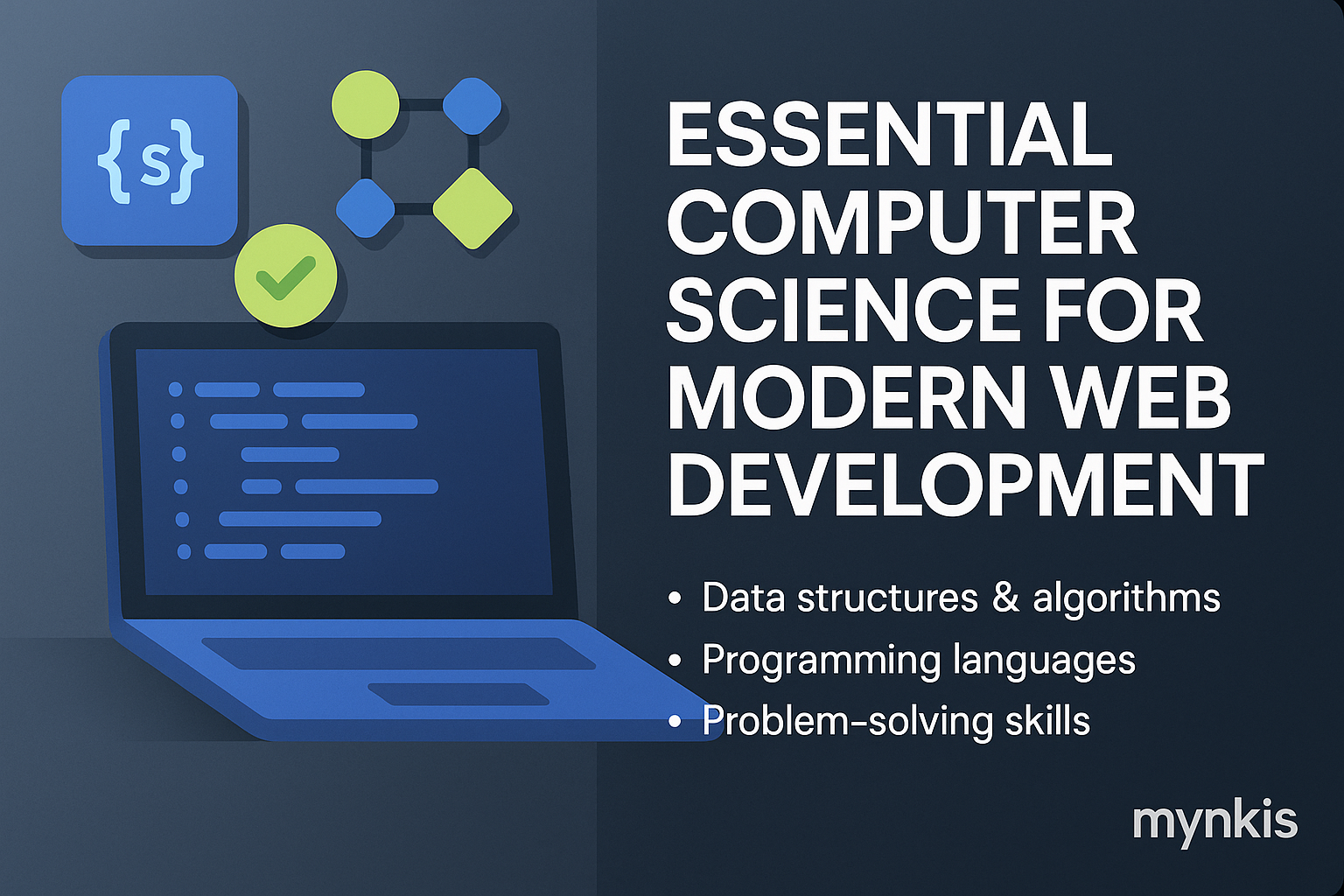Schedule a Demo
In the realm of custom software development, where enterprise-level solutions are the norm, a deep understanding of computer science fundamentals isn't just beneficial; it's essential. From crafting algorithms to optimizing web applications, these concepts underpin the very fabric of our digital world. Whether you're building a booking-enabled website designed to boost user conversion or an application tuned for organic search, the principles of computer science form the bedrock of your success.
Let's unpack the key elements every developer should master. We'll start with algorithms. An algorithm is a structured set of instructions to accomplish a specific task. Think of it as your recipe for creating a flawless user experience. For instance, when designing a booking engine, you'd develop an algorithm that not only efficiently processes requests but also guides users intuitively through their booking journey.
Moving on to data structures, these are the containers that hold and organize your data for efficient access and modification. Imagine developing a high-conversion website where each user interaction needs to be logged and accessed seamlessly. Using appropriate data structures like linked lists for sequential access, trees for hierarchical organization, or hashtables for rapid lookups can significantly enhance application performance.
In my work with project leads, I've seen how a well-designed algorithm can revolutionize an application. Consider search functionality within a booking system. A simple linear search might work for small datasets, but it becomes inefficient as the dataset grows. Implementing a binary search algorithm could dramatically reduce the time a user waits for results, improving user experience and, by extension, conversion rates.
Let's talk about computational complexity. This is crucial for balancing code efficiency with maintaining high-quality software. When developing enterprise web solutions, every millisecond counts in delivering user engagement. Algorithms with lower time complexity can mean the difference between a smoothly running system and one that's bogged down by heavy processing loads.
Programming paradigms shape how developers approach problem-solving. Object-oriented programming, for instance, allows developers to design systems that mirror real-world interactions, such as modeling a reservation system with classes representing users, bookings, and resources. Alternatively, functional programming emphasizes immutability and pure functions, which can lead to more predictable and easier-to-maintain code, particularly important in large-scale development projects.
Understanding operating systems is key for developers working on scalable and efficient web platforms. Knowing how an operating system manages system resources and processes can influence how we design our web applications. For a booking system to handle high concurrent access during peak times, leveraging the right OS capabilities could be vital to ensuring stability and performance.
Debugging and code optimization are not just technical skills but art forms. When an application's performance is bottlenecked, developers need to dive deep into the codebase. For a booking system targeting higher conversion rates, optimizing queries, reducing response times, and refining resource allocation can turn a good user experience into an excellent one.
Web developers must understand the basics of networking. Protocols such as HTTP or HTTPS govern how data travels between users and servers. For a website aiming for top-notch user conversion, a robust networking setup ensures that every interaction, from clicking on a booking form to completing the transaction, is fast and reliable.
Database management systems are the backbone of any dynamic website or application. For a booking platform, this means choosing the right database architecture that not only ensures data integrity but also facilitates swift transactions, increasing the probability of a user completing a booking.
Security cannot be an afterthought. For booking websites, safeguarding user data is non-negotiable. From implementing strong encryption to ensuring robust firewalls, every layer of security contributes to building trust with your users, which can directly influence conversion rates.
The software development lifecycle frames the entire process of bringing a website from idea to reality. It encompasses requirements gathering, planning, development, testing, deployment, and maintenance. A deep knowledge of this cycle ensures that the final product not only meets design expectations but also excels in user conversion and organic search optimization.
Keeping an eye on emerging trends such as AI, machine learning, and blockchain technology can provide a competitive edge. These technologies are starting to impact how we approach custom software development and enterprise web solutions. They promise to revolutionize user experience and conversion through predictive analytics and personalized user journeys.
Integrating these computer science concepts is vital for creating websites and applications that truly resonate with users. When designing a booking system focused on user conversion and organic search, consider how each principle can enhance the user's journey. An algorithm could suggest bookings based on past behavior, data structures could optimize the reservation process, and maintaining tight security ensures that users feel safe to complete their bookings.
Reflecting on the scope of computer science and its application, it's clear that the depth of your foundational knowledge influences the sophistication and success of the products you build. For owners looking to develop websites with booking capabilities, understanding these fundamentals provides a solid platform to create solutions that genuinely enhance user engagement and conversion.
